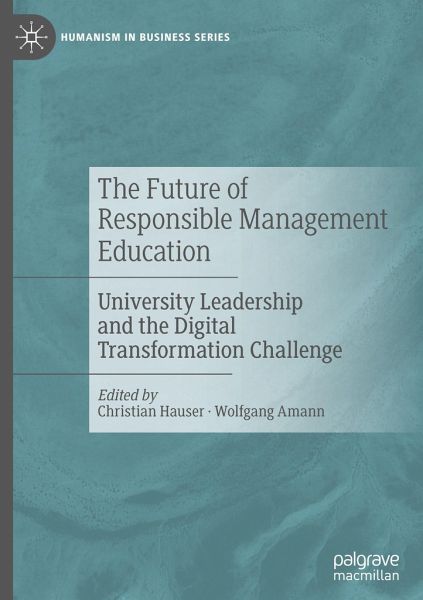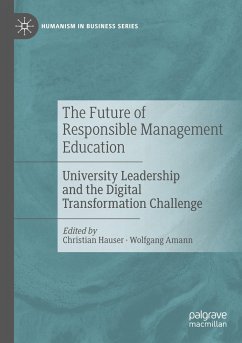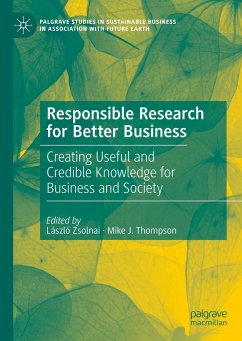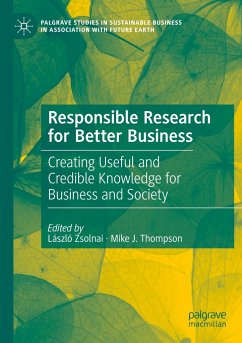
The Future of Responsible Management Education
University Leadership and the Digital Transformation Challenge
Herausgegeben: Hauser, Christian; Amann, Wolfgang

PAYBACK Punkte
68 °P sammeln!
Business schools have been criticized for several things, such as lacking relevance, a too weak ethics orientation, dated paradigms, or commercialization. Simultaneously, there has been much positive change and accelerated dynamics toward forming future-ready companies and graduates. This book outlines how to better understand and master the digital transformation challenge. It is essential that business school deans, program directors, and faculty members embrace new opportunities to bring the UN-backed Principles of Responsible Management Education (PRME) to life successfully.Part of the Hum...
Business schools have been criticized for several things, such as lacking relevance, a too weak ethics orientation, dated paradigms, or commercialization. Simultaneously, there has been much positive change and accelerated dynamics toward forming future-ready companies and graduates. This book outlines how to better understand and master the digital transformation challenge. It is essential that business school deans, program directors, and faculty members embrace new opportunities to bring the UN-backed Principles of Responsible Management Education (PRME) to life successfully.
Part of the Humanism in Business series, this book constitutes a valuable resource for leaders in universities and business schools, as well as individual faculty members aspiring to optimize how they respond to digital transformation. It can also be of use to those studying responsible management education, leadership and business ethics more generally.
Part of the Humanism in Business series, this book constitutes a valuable resource for leaders in universities and business schools, as well as individual faculty members aspiring to optimize how they respond to digital transformation. It can also be of use to those studying responsible management education, leadership and business ethics more generally.














